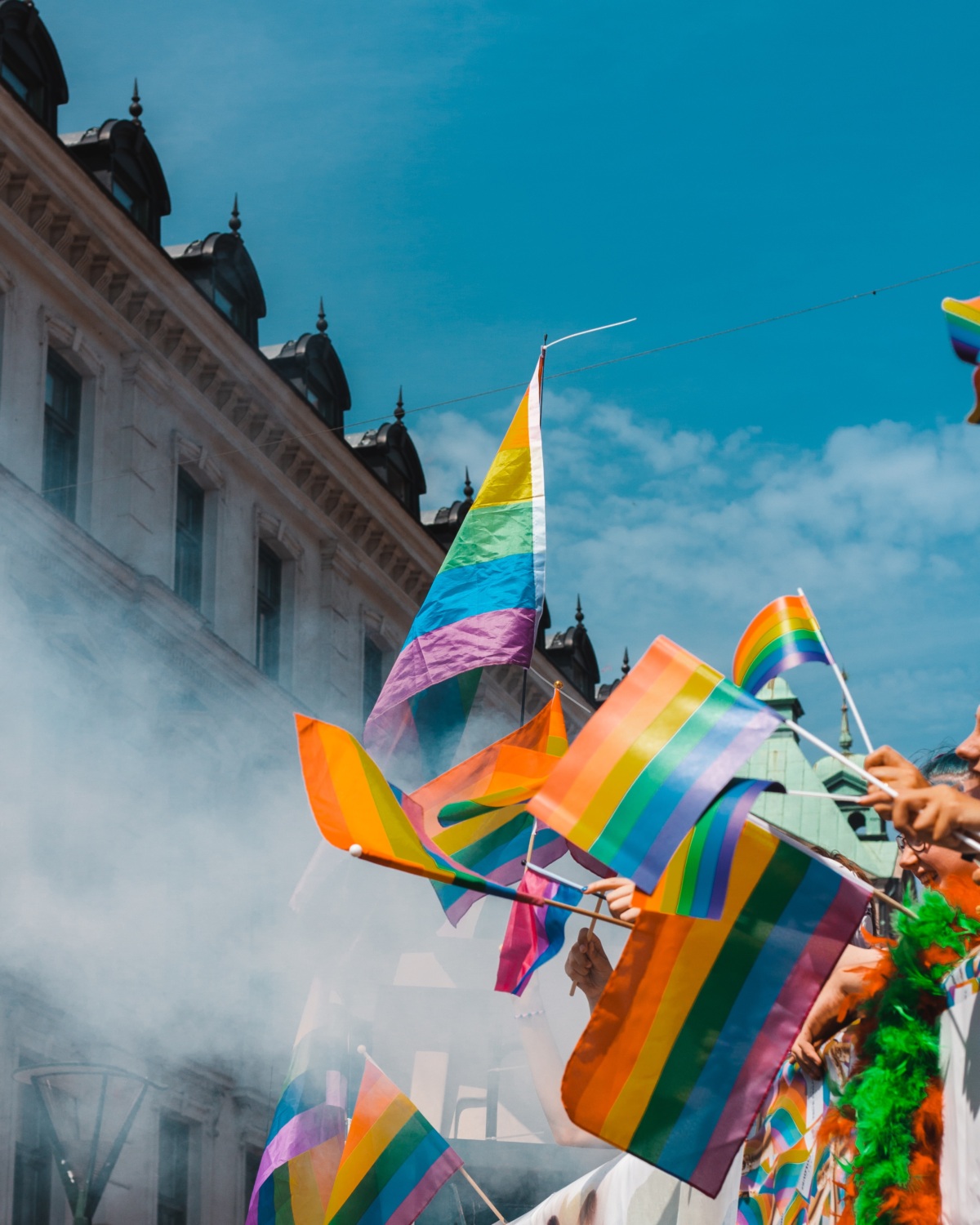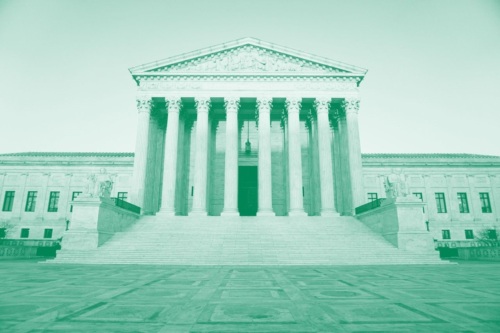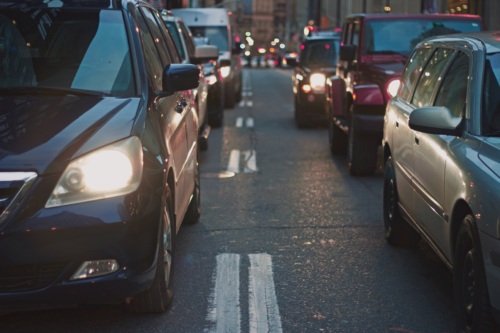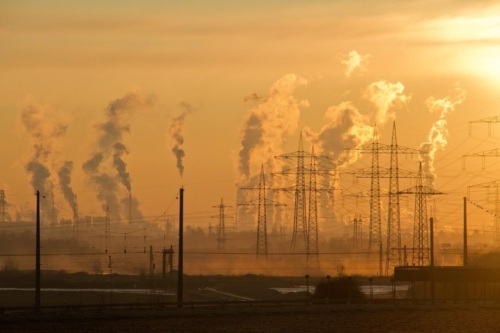Connecting Climate Justice and LGBTQ+ Justice: Three Youth Activists Fighting for Both
Jul 25, 2024
 Photo by: https://unsplash.com/@teddy0110?utm
Photo by: https://unsplash.com/@teddy0110?utm
Black trans activist Marsha P. Johnson
The movement for LGBTQ+ justice has grown stronger and more inclusive since the first Pride March was held 53 years ago in New York City on June 28, 1970. Since then, the LGBTQ+ justice movement, like the environmental movement, has made important strides in the fight for racial justice and equity, but we still have a long way to go. The LGBTQ+ community is very diverse, and those with multiple marginalized identities — like LGBTQ+ people of color — experience greater impacts of climate and environmental injustice.
As the Center for American Progress explains, race is the biggest determinant of experiencing environmental injustice – and LGBTQ+ people of color are even more likely to experience socioeconomic stressors that lead to disproportionately high exposure to an unhealthy environment. This means that as an environmental movement, we must fight for LGBTQ+ people of color to have access to breathe clean air, drink clean water, and live in a healthy environment. As Tyrone Hanley, NCLR Director of Racial and Economic Justice Initiatives put it, “supporting LGBTQ people means recognizing our full humanity, including the ability to live on a healthy planet.”
As we are already seeing, the environmental disasters that are becoming more frequent and intense as a result of climate change will not affect everyone equally. Hurricanes, heat waves, floods and other extreme weather events disproportionately endanger people who live in places that our country has continually neglected — whether it be through lack of investments in infrastructure, poor protections from pollution, limited access to the civic process or other types of disenfranchisement. During disasters, LGBTQ+ individuals of color face unique discriminatory practices, such as the two Black transgender women who were arrested for using the bathroom of their gender at an emergency temporary shelter during Hurricane Katrina. LGBTQ+ individuals, particularly transgender people of color, are also less likely to have access to emergency aid, healthcare, and shelter during disasters, and are more likely to face physical violence.
Issues of equality and sustainability go hand in hand. Addressing the climate crisis is a fight for every person on this planet, regardless of their sexual orientation or gender identity, but we can and should lead those efforts in ways that promote equity and accessibility.
In an interview with Representative Sean Patrick Maloney (D NY-18), the first openly gay person elected to Congress from New York, he spoke about the intersectional relationship between LGBTQ+ rights and the environmental justice movement, saying “Whether through investing in affordable housing and building that housing in sustainable, resilient ways or by expanding and protecting public lands while ensuring those lands are accessible to disabled and diverse communities, there are many ways we can champion equality and climate efforts simultaneously.”
A group of people particularly at risk from climate change impacts are the unhoused. Due to discrimination that undermines their ability to have stable, safe, and affordable housing, LGBTQ+ young adults are more than twice as likely to experience houselessness than non-LGBTQ+ people. Lack of access to safe shelter leaves unhoused people more vulnerable to complications during such disasters, such as respiratory from wildfire smoke or hypothermia from cold snaps and severe floods. This makes the housing crisis and discrimination against LGBTQ+ people both environmental justice issues.
“It starts with poverty,” said Precious Brady-Davis, deputy press secretary for the Beyond Coal Campaign at Sierra Club, on the link between environmental justice and LGBTQ+ justice. Brady-Davis identities as a trans woman.
In an article for Grist, Brady-Davis references studies showing that transgender people in particular experience poverty at a rate more than double that of the general U.S. population. She also highlights reports showing how gender-based discrimination, especially against transgender people, leads them to experience higher rates of violence and displacement during climate disasters, in addition to disproportionately high rates of constant exposure to dirty air and water.
As the environmental movement works to become more inclusive and center the communities that are on the frontlines of the climate crisis and environmental injustice, it must center LGBTQ+ people – particularly transgender people of color – that experience compounding discrimination and violence.
Fighting the increasingly hateful attacks on LGBTQ+ people is critical to a just and equitable environmental movement.
As the White House’s 2023 Proclamation on Lesbian, Gay, Bisexual, Transgender, Queer, and Intersex Pride Month outlines, we are at an inflection point in which discriminatory attacks against LGBTQ+ people from the extreme right are growing. In 2023 alone, state and local legislatures have already introduced over 600 hateful laws targeting the LGBTQ+ community. These attacks are accompanied by racist and discriminatory voting laws, like restrictive voter ID laws that disproportionately deny transgender women access to the ballot box.
Tammy Baldwin (D-WI), the first openly LGBTQ+ woman elected to the House of Representatives and to the Senate.
LCV understands that the power to fight back against corporate polluters and hold elected officials accountable begins with our ability to have every voice in every community represented in our democracy. This means that as an environmental movement, we must fight for LGBTQ+ people of color to have access to breathe clean air, drink clean water, and vote.
To uplift LGBTQ+ communities of color this Pride Month, take action and make your voice heard by contacting Congress and the EPA (see below).
Tell Congress: Expand the Court, because we need a balanced court that works for all of us, not just the powerful and wealthy.
Tell the EPA: It’s Time for Cleaner Cars and Trucks, because each year, this pollution cuts short tens of thousands of lives and leaves even more people with respiratory diseases like asthma.
Tell the EPA: Limit Power Plant Pollution, because unless environmentalists speak out, polluters and their allies in Congress could succeed in weakening action by the EPA to protect us against harmful power plant pollution.
Tell the Senate: Protect Voting Rights and Confirm Pro-Democracy Judges, because as right-wing judges seek to peel back our fundamental rights, dozens of pro-democracy, pro-environment judicial nominees are waiting to be confirmed.

The extremist Supreme Court issued one of the most environmentally devastating decisions in decades through West Virginia v. EPA. Protections for our environment, our reproductive rights, our equality, and our democracy are only as strong as the judges who uphold them. It’s past time to expand the Supreme Court and appoint new justices who will work for the people, not deep-pocketed polluters and their far-right allies.

Tailpipe emissions from cars, SUVs, and heavy trucks are the leading contributor to climate change in the United States. Each year, this pollution cuts short tens of thousands of lives and leaves even more people with respiratory diseases like asthma. This pollution harms everyone, and low-wealth communities and communities of color are often hit hardest.
The EPA must go further and faster to address the urgent public health and climate crises. Take action right now. Urge the EPA to adopt even stronger clean car and truck standards that bring us to 100% clean vehicles sold by 2035.

The EPA has proposed new rules to limit carbon pollution from fossil-fueled power plants, as well as tighter standards to reduce toxic mercury pollution from power plants. These steps will lead to cleaner air, healthier communities, and a safer climate. But unless environmentalists like you speak out, polluters and their allies in Congress could succeed in weakening or delaying new protections.
Take action today: tell the EPA that you support the strongest possible protections against pollution from power plants.